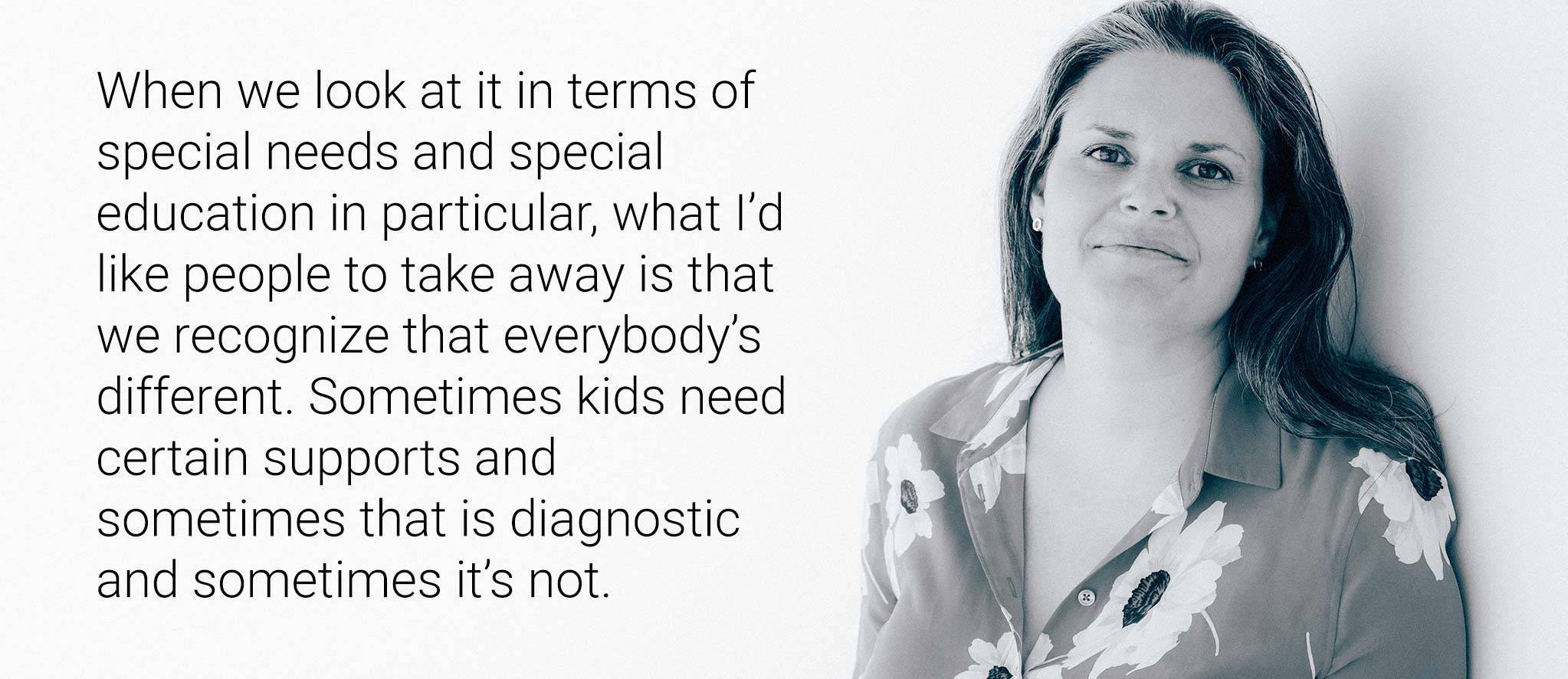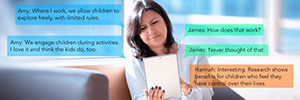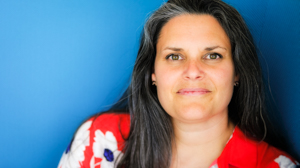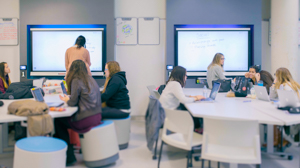- Future Students
- Current Students
- Faculty
- Staff
- Alumni
- Others
Q&A: UofGH’s Dr. Nikki Martyn discusses research on Early Childhood Education and special education in Canada

Dr. Nikki Martyn, Early Childhood Studies Program Head at the University of Guelph-Humber, recently published a research paper in the journal "Bloomsbury Education and Childhood Studies" titled “Special Educational Needs and Disabilities in Early Childhood Education (Canada).” This paper is part of a larger series of research papers exploring special needs in early childhood education around the world.
We spoke with Dr. Martyn, and asked her to share her experience with researching this topic and her findings.
How did you become involved with this project?
I was asked to contribute by the regional editor and professor at the University of Western Ontario. This article was written for an interesting resource, it looks at the same topics across different countries around the world. Providing us an opportunity to see a global perspective on children and education.
What does the paper focus on?
This paper focuses on special education and disabilities in Canada within Early Childhood Education, but there will also be a research paper for many counties such as, Brazil, Denmark, Finland, Italy, and China, so I thought what an interesting resource for our students and other professionals to be able to understand how children and educators are understood in different parts of the world, I thought that was phenomenal.
What was your research process?
The field of early childhood education is regulated provincially in Canada. So I looked at all the regulations and policies for all the provinces and territories – exploring how each province and territory regulates early childhood education, with a specific focus on special needs and disabilities. What does that look like for the early years and special education in Canada, because typically this is a term used for elementary school and high school, but it’s not what we think about with a play-based curriculum in early learning and care.
So that was an interesting process for me in exploring and diving into the early childhood education regulations for each province or territory, but also nationally, what do we actually offer children across Canada? I was really happy to find that there are a couple of key things that existed across Canada for all Canadians, and interestingly they ended up being in the Canadian Charter of Rights and Freedoms, and that’s inclusion and diversity.
What was most challenging about this research?
I was asked to write about special education in early childhood education in Canada, and initially I was uncertain about what I would find and how I would capture the unique and diverse perspectives that make up Canada, it became very clear when I examined the policies and regulations across Canada. There was some consistency, but the struggle was being able to capture what is provincial and what is federal, what is universal to all our children. Then we can talk about what all Canadian children have access to, and one of those things was an inclusive environment. And the idea of human rights, the idea of the rights of the child, that they have a right to play, they have the right to education, they have the right to be heard, all these things that are in the UN Charter, although I didn’t talk about it in this paper, it was implicit in the idea of inclusion and education.
What findings did you find most interesting?
The thing I found most interesting, when we look at special education across Canada – because the field of early childhood education is regulated provincially – it becomes far more complex and interesting than one would initially anticipate, because you’re looking at 13 provinces and territories. That means there are 13 ways of funding and understanding, and having 13 different regulations and policies for special needs and Early Learning and Care. It was really interesting to think about all the differences and similarities within Canada, which often in Ontario we don’t think about. So this gave me an interesting opportunity to explore that.
But I was also really happy to find that there are a couple of key things that existed across Canada for all Canadians, federal funding for special needs and the support and celebration for the uniqueness of children, seen in policies and regulations, through inclusion and diversity.
It was an interesting experience to remember in our day-to-day lives that Canada is so big and vast, but this allowed me to think about how many unique experiences we have in our own country and look at the resources we all share, because we are all Canadians. How interesting it is as a reminder for us all, of how vast our collective experiences are – whether you are on the east or west coast, in the prairies, in Quebec, or in the North such diverse experiences, that is a strength we can build on, the inclusion and diversity and how much we share as Canadians.
What are you hoping that people will take away from this paper?
When we look at it in terms of special needs and special education in particular, what I’d like people to take away is that we recognize that everybody’s different. Sometimes kids need certain supports and sometimes that is diagnostic and sometimes it's not. As early childhood professionals we need to be able to address those issues within the environment. What that means for the early childhood educator is to be able to modify and adapt to meet the needs of the child – most children in early learning and care aren’t diagnosed yet, so you’re adapting, you’re understanding who the child is, what their strengths are and adapting the curriculum, modifying the play to meet the needs of the whole child and all the children, and that’s where I think early childhood education is an interesting model for us to understand that we have to meet children where they are. We are all unique and special.
Learn More About







